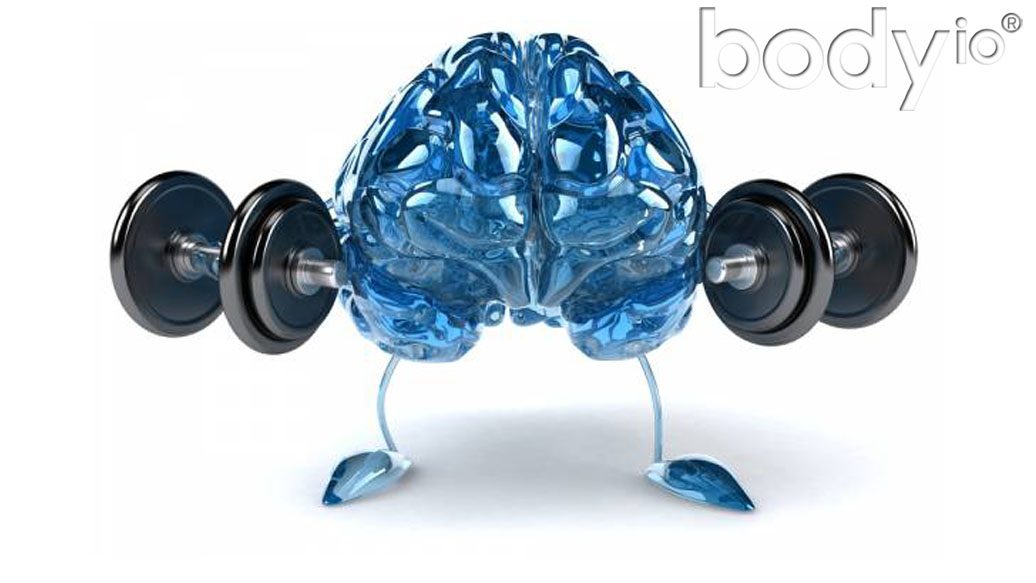s I approach my 63rd birthday, I am very conscious about my brain’s health, particularly my cognitive and executive functions. Data collected in 2015 by the CDC showed that up to 18% of adults 60 to 64, nearly 1 in 5, suffered from confusion and memory loss[1] indicating deficits in cognitive function. Yikes!
Briefly, cognitive functions are those abilities, including attention, short and long-term memory, language processing, perception, decision-making, and problem-solving, we depend on to acquire and correctly process information[2]. Impaired cognitive functions spill over and cause deficits in impaired executive functions. Executive functions are the mental processes that enable us to plan, focus attention on a task, set and achieve goals, remember instructions, manage multiple tasks, and control impulses[3]. The efficient and proper operation of these abilities is essential to staying functional when you get into my age territory.
While many of you are not as “senior” as I am, it’s important to be aware of what potentially lies ahead of you, and what you can do about it.
Resistance Training and Aging
Many organizations recommend that older adults engage in at least two days of strength training per week of all the major muscle groups[4-6] for physical health purposes. As I get ready to enter my fifth year of consistent resistance training, I have clearly seen the health and physical benefits returned in the form of improved muscle mass and strength, potentially improving my life span[7,8].
Resistance Training and Brain Health
I am constantly encouraged by my own experience with resistance training and the research showing the positive relationship between lifting and physical health. I have also recently been excited by the link between resistance training and brain health, specifically its role in reversing age-related declines in mental functioning, specially declines in cognitive and executive functions.
Resistance Training Impacts on Cognitive and Executive Functions
A single-blinded randomized 2010 trial of 155 community-dwelling women aged 65 to 75 years old were randomly assigned to once-weekly or twice-weekly resistance training or twice-weekly balance and tone training over twelve months. At the end of the trial, the women in the resistance training group showed significant improvements on tests assessing cognitive and executive functions involving selective attention, conflict resolution, and working memory; the women in the balance and toning group showed declines. The findings supported the benefits of twelve months of once-weekly or twice-weekly resistance training to improving executive and cognitive functions[9].
A second study was a 2014 randomized, double blind-controlled study that contrasted the effects of high intensity progressive resistance training against seated calisthenics, cognitive training, or watching videos two to three days per week for six months on multiple measures of cognitive and executive functions, with an 18-month follow-up. The sample included one hundred adults (average age of 70) with mild cognitive impairment, a risk factor for dementia. Resistance training outperformed the other interventions and contributed to reductions in cognitive impairment and maintenance of executive functions at both six and 18-month follow ups[10].
These two studies show that regular resistance training for as few as six months can reverse declines in cognitive and executive functions. It appears that the “mind-muscle” connection goes deeper than simply improving muscle activation[11,12].
Resistance Training Impacts on Functional Plasticity
One mechanism by which resistance training supports cognitive and executive functions is its role in promoting functional plasticity. Functional or neuronal plasticity defines the ability of one part of the brain to take over functions from other damaged areas. As parts of the brain lose function with aging, loss of functional plasticity impairs the brain’s ability to adapt to this loss by recruiting other areas to take over these functions[13] leading to cognitive decline.
Two studies support the role of resistance training in promoting functional plasticity. A 2012 study involved seventy-seven women 70 to 80 years old randomly assigned to resistance training, aerobic training, or a balance and toning group twice per week. Testing identified women with mild cognitive impairment. Functional magnetic resonance imaging (fMRI) was used to examine differences in patterns of neuronal activity. After 26 weeks, compared to women in the aerobic or balance and toning groups, those in the resistance training group showed improved performance on cognitive and executive function tests, and showed functional changes in three regions of the cortex supporting the effects of resistance training on functional plasticity[14].
The second study, also conducted 2012, showed that twelve months of twice-weekly resistance training led to functional changes in two regions of the cortex among a sample of community-dwelling senior women. These blood flow changes were associated with improved task performance[15]. What was interesting about this study was that only resistance training done twice per week compared to once per week were associated with positive changes in functional plasticity.
The above four studies support the direct benefits of resistance training to the treatment of age-related declines in both cognitive and executive functions. In my mind, if your nearing 50 years old and don’t lift, it is certainly time to start if you want to keep your wits about you in later years.
There is another way that resistance training may support age-related mental functioning indirectly: supporting telomere length.
Resistance Training, Telomere Length, and Cognitive Decline
Telomere length is an indicator of biological aging[16]. In a past Body IO article (CrossFit—Hype or Helpful?), I reviewed research that showed the positive relationship between resistance training and maintaining telomere lengths. A link between telomere length and the risk of cognitive decline was identified in a 2006 study where telomere lengths in peripheral blood cells were measured among a sample of stroke survivors at three months after stroke and again after two years. Longer telomeres at the beginning of the study were linked to a lower risk of both death and dementia[17]. A 2011 study showed the same relationship between telomere length and cognitive decline after seven years among sample of nearly 3,000 non-demented seniors with a mean age of 74 years[18].
Resistance Training and Psychological Health
Past studies have shown the benefits of resistance training in aiding mood-related disorders[19] and depression[20,21]. The line of research covered in this article supports resistance training as an approach to helping the brain maintain critical functions with aging. The relationship is so consistent the argument can be made for prescribing resistance training as a treatment for heading off and treating age-related cognitive decline.
Resistance training qualifies as a true health psychological therapy for treating cognitive and executive function declines associated with aging. I am glad to see my own field of psychology beginning to recognize this[22].
By 2050 the 65-plus population in the U.S. will reach 83 million, nearly twice their numbers in 2012[23]. If you’re 35 or older, you’re going to be one of them! If this article does anything, it should encourage you to develop a habit of regular resistance-training. That way, when you are part of that 65-plus crowd thirty years from now, you’ll be in better shape to appreciate it.
[expand title=”References (click to expand)”]
-
- 1. Centers for Disease Control & Prevention (CDC) (n.d.). Healthy aging data: cognitive decline. Retrieved from https://nccd.cdc.gov/aging_data/rdPage.aspx?rdReport=DPH_HAP.ExploreByTopic&islClass=C06&islYear=2015
2. Mitchel, G. Cognitive function: definition & assessment. Retrieved from https://study.com/academy/lesson/cognitive-function-definition-assessment-quiz.html 2018
3. Center on Developing Child, Harvard University. Executive Function & Self-Regulation. Retrieved from https://developingchild.harvard.edu/science/key-concepts/executive-function/ 2017
4. American Heart Association. Strength and resistance training exercise. Retrieved from https://www.heart.org/HEARTORG/HealthyLiving/PhysicalActivity/FitnessBasics/Strength-and-Resistance-Training-Exercise_UCM_462357_Article.jsp 2015, March 24
5. Centers of Disease Control and Prevention (CDC). Physical activity is essential to healthy aging. Retrieved from https://www.cdc.gov/physicalactivity/basics/older_adults/index.htm 2015, June
6. Mayo Clinic. Strength training: Get stronger, leaner, healthier. Retrieved from https://www.mayoclinic.org/healthy-lifestyle/fitness/in-depth/strength-training/art-20046670 2016, April 22
7. Rantanen, T., Harris, T., Leveille, S. G., Visser, M., Foley, D., Masaki, K., & Guralnik, J. M. Muscle strength and body mass index as long-term predictors of mortality in initially healthy men. The Journals of Gerontology Series A: Biological Sciences and Medical Sciences, 55(3), M168-M173. 2000
8. Srikanthan, P., & Karlamangla, A. S. Muscle mass index as a predictor of longevity in older adults. The American Journal of Medicine, 127(6), 547-553. 2014
9. Liu-Ambrose, T., Nagamatsu, L. S., Graf, P., Beattie, B. L., Ashe, M. C., & Handy, T. C. Resistance training and executive functions: a 12-month randomized controlled trial. Archives of Internal Medicine, 170(2), 170-178. 2010
10. Singh, M. A. F., Gates, N., Saigal, N., Wilson, G. C., Meiklejohn, J., Brodaty, H., … & Baker, M. K. The Study of Mental and Resistance Training (SMART) study—resistance training and/or cognitive training in mild cognitive impairment: a randomized, double-blind, double-sham controlled trial. Journal of the American Medical Directors Association, 15(12), 873-880. 2014
11. Calatayud, J., Vinstrup, J., Jakobsen, M. D., Sundstrup, E., Brandt, M., Jay, K., … & Andersen, L. L. Importance of mind-muscle connection during progressive resistance training. European Journal of Applied Physiology, 116(3), 527-533. 2016
12. Schoenfeld, B. J., & Contreras, B. Attentional focus for maximizing muscle development: The mind-muscle connection. Strength & Conditioning Journal, 38(1), 27-29. 2016
13. Burke, S. N., & Barnes, C. A. Neural plasticity in the ageing brain. Nature Reviews Neuroscience, 7(1), 30. 2006
14. Nagamatsu, L. S., Handy, T. C., Hsu, C. L., Voss, M., & Liu-Ambrose, T. Resistance training promotes cognitive and functional brain plasticity in seniors with probable mild cognitive impairment. Archives of Internal Medicine, 172(8), 666-668. 2012
15. Liu-Ambrose, T., Nagamatsu, L. S., Voss, M. W., Khan, K. M., & Handy, T. C. Resistance training and functional plasticity of the aging brain: a 12-month randomized controlled trial. Neurobiology of Aging, 33(8), 1690-1698. 2012
16. Benetos, A., Okuda, K., Lajemi, M., Kimura, M., Thomas, F., Skurnick, J., … & Aviv, A. Telomere length as an indicator of biological aging. Hypertension, 37(2), 381-385. 2001
17. Martin‐Ruiz, C., Dickinson, H. O., Keys, B., Rowan, E., Kenny, R. A., & Von Zglinicki, T. Telomere length predicts poststroke mortality, dementia, and cognitive decline. Annals of Neurology, 60(2), 174-180. 2006
18. Yaffe, K., Lindquist, K., Kluse, M., Cawthon, R., Harris, T., Hsueh, W. C., … & Rubin, S. M. Telomere length and cognitive function in community-dwelling elders: findings from the Health ABC Study. Neurobiology of Aging, 32(11), 2055-2060. 2011
19. Cassilhas, R. C., Antunes, H. K. M., Tufik, S., & De Mello, M. T. Mood, anxiety, and serum IGF-1 in elderly men given 24 weeks of high resistance exercise. Perceptual and Motor Skills, 110(1), 265-276. 2010
20. Singh, N. A., Clements, K. M., & Fiatarone, M. A. A randomized controlled trial of progressive resistance training in depressed elders. The Journals of Gerontology Series A: Biological Sciences and Medical Sciences, 52(1), M27-M35. 1997
21. Singh, N. A., Stavrinos, T. M., Scarbek, Y., Galambos, G., Liber, C., Fiatarone Singh, M. A., & Morley, J. E. A randomized controlled trial of high versus low intensity weight training versus general practitioner care for clinical depression in older adults. The Journals of Gerontology: Series A, 60(6), 768-776. 2005
22. Mikulak, A. From aging to aging well. Retrieved from https://www.psychologicalscience.org/observer/from-aging-to-aging-well 2017, November 30
23. Ortman, J. M., Victoria A. Velkoff, V. A., & Hogan, H. An Aging Nation: The Older Population in the United States. Retrieved from https://www.census.gov/prod/2014pubs/p25-1140.pdf 2014, May
[/expand]












